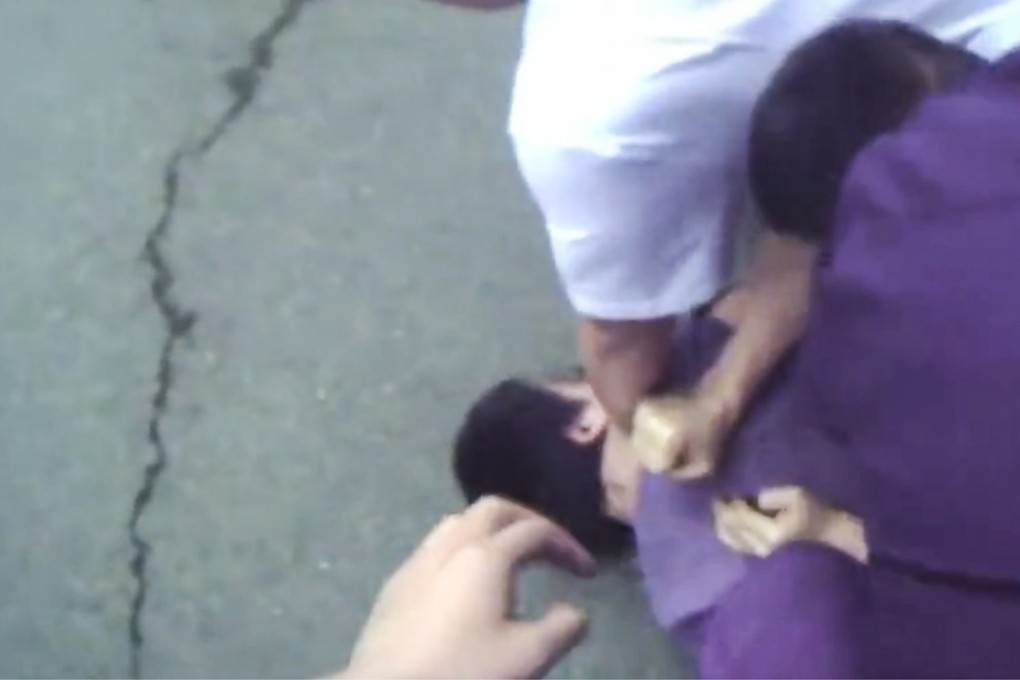Beijing police claim Hong Kong journalist they dragged away resisted their authority and behaved ‘inappropriately’
Now TV cameraman Chui Chun-ming was at the hearing of a human rights lawyer when he was handcuffed and dragged into a police van while bleeding

Beijing’s law enforcement authority on Friday insisted the Hong Kong video journalist who was handcuffed and dragged into a police van while bleeding had resisted officers and inappropriately grabbed his press cards, releasing a statement and video clip to support their claim.
This drew a swift response from Now TV, the employer of cameraman Chui Chun-ming, criticising the officers for using “excessive force” against its staff member.
Now TV had earlier released its own footage of what transpired when Chui and his colleagues were covering a Beijing Lawyers Association hearing on Wednesday that involved human rights lawyer Xie Yanyi.
The 46-second video released by the Beijing Municipal Public Security Bureau on Friday starts with Chui telling officers that he had cooperated with them when they checked his press credentials. He then asks where they have kept his cards.
The footage shows the officer holding the cards, and when Chui tries to grab them, the other officers stop him, resulting in a struggle. Chui is then held down by at least three men in plain clothes. The video stops there.